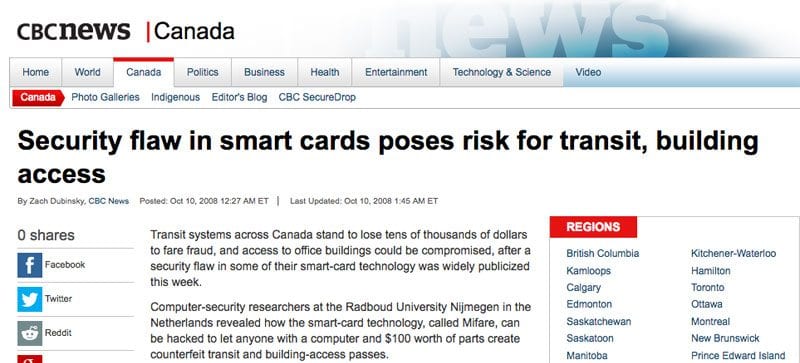(Toronto, Ontario) April 19, 2017 – Eden Advertising & Interactive Inc. and Racad Tech Inc. are proud to announce the launch of joint client website project for Rainbow Printing.
Author Archives: Racad Support
Security Printing! What is it? Why do I need it?
Security Printing is a means to protect your investments. Whether it is an event that you are selling tickets for or a laser check that you pay your employees with, having a secure document helps to prevent people from trying to duplicate or use it for their own financial gain.
Fredericton Transit adds holograms to new-look bus passes
Fredericton Transit is introducing a new security feature to its monthly bus passes, several months after a CBC News story revealed how easy it was to copy the previous passes.
Sussex ‘buy local’ signs not bought locally
The Sussex Downtown Business Association poster campaign that asks residents to shop local hasn’t practiced what it preached.
Security flaw in smart cards poses risk for transit, building access
Transit systems across Canada stand to lose tens of thousands of dollars to fare fraud, and access to office buildings could be compromised, after a security flaw in some of their smart-card technology was widely publicized this week.
Rainbow Printing. In business for over 30 Years.
Family owned and operated, Rainbow Printing began in 1985 and has been growing ever since. We have been serving people long enough to be confident in our experience and service, and we are small enough to ensure the best attention to detail possible.
3 blind Saint John Transit passengers file human rights complaints
Complainants hope to ‘right a wrong’ and restore free bus service for legally blind in city
Man arrested for selling fake bus passes on Kijiji
Saint John Police received a complaint over transit passes sold online
Saint John Police are warning about fraud after fake city bus passes were sold on the online classified site Kijiji.
Printer urges N.B. to take security measures
COUNTERFEITING: Anyone with a computer, scanner and high resolution printer can make fake government documents
A computer or photocopier are all a counterfeiter needs to create fraudulent documents and a Sussex printing company is urging the province to beef up its security measures.

















